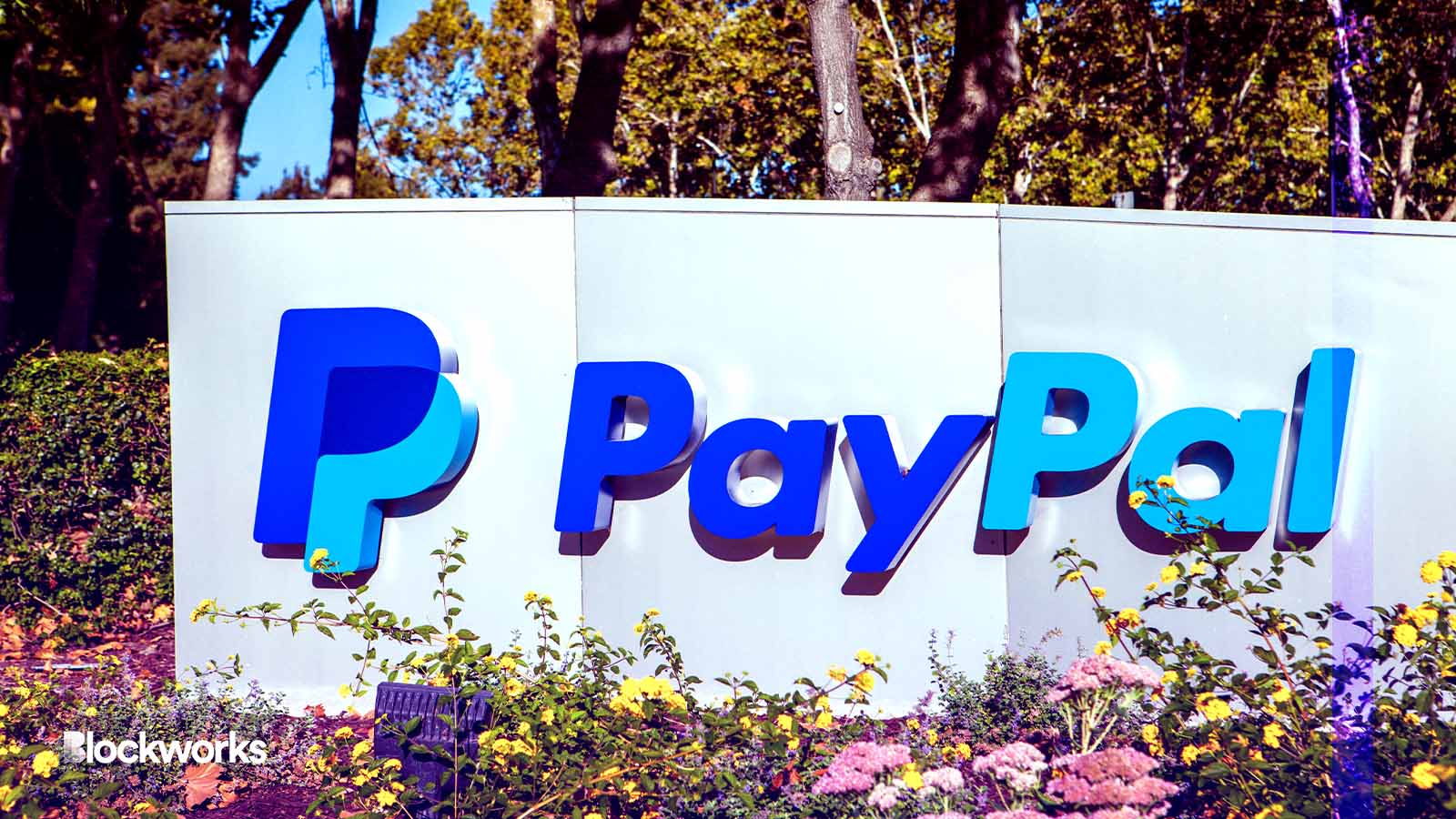PayPal’s new stablecoin stirs centralization criticism
At its core, PYUSD is a digital asset run by one of the world’s biggest regulated payments companies

Lets Design Studio/Shutterstock modified by Blockworks
Payments giant PayPal revealed that it will introduce a stablecoin tied to the US dollar on Monday.
The stablecoin, dubbed PYUSD, can be transferred between PayPal and any compatible external wallets. With the stablecoin, users can pay for purchases and convert the token to any supported cryptocurrency.
As might be expected, PayPal’s decision to join the stablecoin game has drawn significant interest — as well as criticism — from the Web3 community.
In particular, concerns have been raised on social media that PYUSD is, at its heart, a centralized digital asset operated by one of the world’s biggest regulated payments company. In practice, this means that PYUSD tokens can be frozen and seized.
“The new Paypal USD stablecoin has an ‘assetProtection’ role which can wipe your balance in two transactions,” Pashov, a developer focused on crypto security, tweeted earlier Tuesday.
Pashov noted that this is considered a “centralization attack vector,” though this should not come as a surprise, he emphasizes, as tether (USDT) and USD Coin (USDC) operate similarly in that users must place their trust in operators to manage their money.
Like USDT and USDC, PYUSD addresses can be paused, blocked and unblocked, Juuso Roinevirta, a DeFi product consultant and head of product and growth at Membrane Finance noted.
Blockworks Research analyst Ren Yu Kong explains that the stablecoin’s centralized nature shouldn’t come as a surprise.
“Fundamentally, US regulators would not greenlight a stablecoin without such functionality and without there being a centralized issuing entity,” Kong said. “Even with such features such as freezing, it is still a net positive for the industry as it increases consumer adoption.”
Blockworks Research analyst Sam Martin said: “While many crypto enthusiasts view the freeze-and-burn functions of PYUSD as a step backward for the crypto industry, it would be naive to think PayPal’s stablecoin would have more decentralized properties than USDC, USDT, et al.”
The stablecoin’s use of apparently old code, as pointed out by developer cygaar, also emerged as a point of contention among some critics.
But this approach isn’t necessarily a bad thing, according to Kong.
“It makes sense that battle-tested contracts are being utilized rather than new code as newer code may not have been challenged or probed rigorously in an open environment before,” Kong explained.
PayPal did not immediately respond to Blockworks’ request for comment.
Fundamentally, as one of the largest payments service providers today, PayPal’s decision to move into the crypto ecosystem can be viewed as a positive sign for the space, Martin argued.
“We should view this as a win for the space, given the fact that PYUSD will be on Ethereum and is able to be sent to external EOAs,” Martin said. “If we want to achieve mass adoption, we need these large web2 fintech companies to help in onboarding real users with real use cases.”
Read more: PayPal USD too big to shut down? Why the stablecoin could be different than Meta’s diem
This view is shared by 6th Man Ventures partner Carl Vogel, who tweeted: “PYUSD will enable many more millions of people to safely enter Web3.”
Importantly, unlike USDT and USDC, Vogel highlighted that PYUSD is held by a bankruptcy-remote business entity — meaning that if the business entity ceased to exist, all PYUSD tokens would be unaffected.
“I would recommend PYUSD for risk-averse users over other stablecoins,” he said.
Get the news in your inbox. Explore Blockworks newsletters:
- The Breakdown: Decoding crypto and the markets. Daily.
- 0xResearch: Alpha in your inbox. Think like an analyst.






